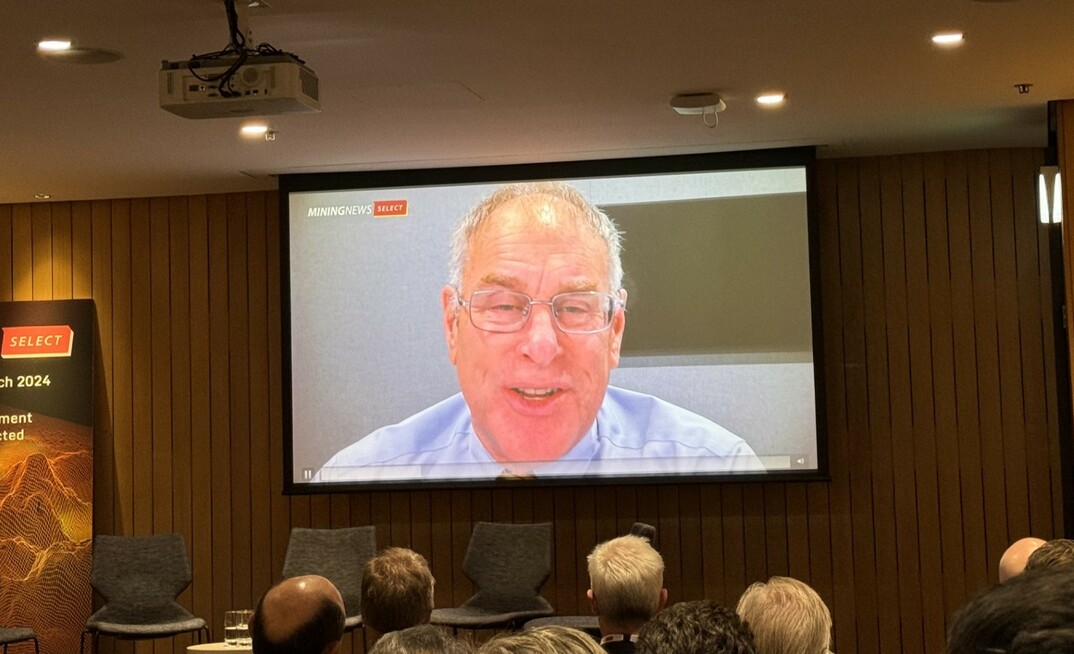Despite economic headwinds, there are plenty of reasons for a bullish resources outlook, mining investment icon Rick Rule told delegates at the start of the inaugural MiningNews Select Sydney today.
The president and CEO of Rule Investment Media said there had been three decades of under-investment in natural resource capacity, and given increasing urbanisation in countries such as India, Indonesia and Brazil, there was a "hugely bullish" outlook for materials including copper.
Rule was also upbeat on uranium and the opportunities in the beleaguered nickel sector in his conversation with Aspermont group managing editor Chris Cann.
Nickel spree
YOU MIGHT ALSO LIKE
The nickel price was depressed because the market got carried away by the battery thematic, Rule said, in addition to surging laterite production out of Indonesia, and Russia selling "everything on the shelf".
He said nickel, platinum and palladium were particularly attractive.
"The prices of those three commodities are in the toilet and I think they continue to be in the toilet for the next year and a half — which means that the shopping season in front of us is wonderful," he told the conference.
"When the price recovery takes place, the recovery in the values assigned to high-quality, low-cost producers will dwarf any cost of capital that you have in terms of holding the asset for a year and a half or two years."
Only way is up for uranium
With uranium back on investors' radars and the price rising recently above US$100 per pound, the easy money had been made but the "big money lies ahead of us", Rule said.
He predicted a looming structural deficit of 50-60 million pounds of uranium per year due to limited supply and increasing demand, with 68 major reactors being built worldwide and more than 100 on the drawing board.
Barring a nuclear catastrophe, "the only direction in terms of supply and demand is higher", he told the conference.
He said the market's transition from spot-price-driven to term-driven would provide relative revenue certainty for developers and potentially lower their cost of debt capital.
"So, while I think the easy money has been made, I think for sure and in certain circumstances among the developers, the big money lies ahead of us," he said.
Growth story
"The real growth story, I think, will be that there's a billion people on Earth who don't have access to primary electricity, and over the next 20 or 25 years, they're going to get it," Rule said.
"It's hugely bullish for industrial materials, for agricultural chemicals, for copper, and for conventional oil and gas in particular."
He said the world was going to use a lot more energy going forward, and despite more than US$5 trillion invested in alternative energies in the past four years, the market share of fossil fuels had been reduced "from a high of 82% — all the way down to 81%".
"Whether [Germany's former leader dubbed the "climate chancellor"] Angela Merkel or [Swedish environmental activist] Greta Thunberg like it or not, the global oil and gas business is in superb condition," he said.
Slow-motion China bull
There was still growth to be seen in China, and anyone writing off the impact of material demand there was making a mistake, Rule said.
"I'm a slow-motion China bull," he said.
"I note that the rate of growth has slowed, but the economy has increased.
"So the aggregate growth measured in US dollar terms is still pretty astonishing."
In the US, the economy was "surprisingly strong" and while Rule was concerned about the country's debt levels being in the trillions, it was "still the largest and deepest capital market in the world".
"Chris, I joke that I have accurately predicted 17 of the last three recessions," he said, noting he was also troubled by the prospect of a global recession.
"I'm not saying this is a probability, but it's enough of a possibility that I am maintaining reasonably high cash balances in my accounts," he said.
Playing the long game
Rule said it was important for investors to take a long-term approach and make decisions based on arithmetic and "the fact that ours is a deeply cyclical, deeply capital-intensive business with very, very long swings".
"I'm never a fan of acting quickly, except if something precipitous happens in the micro that I think the market has overreacted to," he said.
MNS Sydney is the first of three Aspermont events Rule is partnering with this year, with more than 700 institutional and professional investors expected to meet to assess a carefully selected group of the best mining company investment opportunities.
























